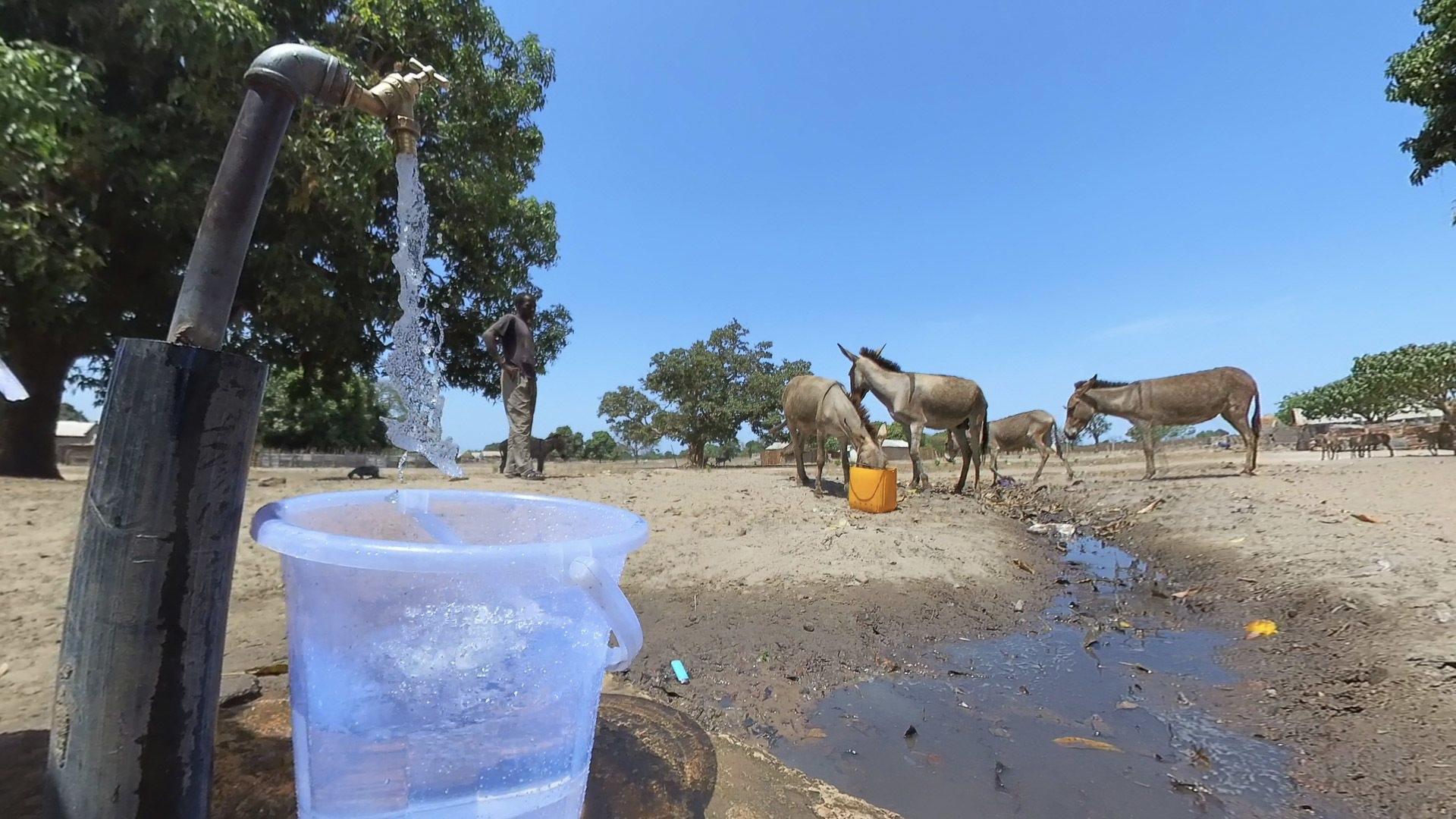Gambiaj.com – (Banjul, The Gambia) – As water scarcity and climate stress deepen across the Sahel, a new and troubling global phenomenon is creeping into West Africa: hydroterrorism. This emerging threat, where water is weaponised by extremist groups for coercion and control, is gaining momentum—raising urgent security questions for vulnerable countries like The Gambia.
A recent report by the Pacific Institute reveals a 50% rise in global water-related violence in 2023, with Foreign Policy warning that the international community’s failure to treat water as a security issue—not just a development or environmental one—is now dangerously short-sighted.
For The Gambia, nestled within the western edge of the volatile Sahel region, the risks are more than theoretical. Climate change has led to rising sea levels and soil salinization, with experts predicting that nearly a third of the country’s rice farms could become unproductive within the next decade.
Meanwhile, access to clean drinking water remains an ongoing struggle, with over 25% of the 2.6 million population lacking reliable supply—especially in rural areas.
“These shortages are not just a humanitarian issue; they are a national security concern,” warns a senior water expert in Banjul. “When people are desperate, they become more vulnerable to manipulation—and extremist groups understand this.”
This is the exact dynamic playing out in the heart of the Sahel, where militants affiliated with ISIS and al-Qaeda are exploiting water scarcity to fill governance gaps.
In Mali, Niger, and Burkina Faso—countries where governments are losing ground—armed groups are stepping in to provide water and basic services. In return, they demand loyalty, enforce ideological obedience, and recruit disillusioned youth.
Although The Gambia has long been considered relatively stable—thanks in part to its tradition of religious tolerance and peaceful coexistence—the country’s young population and fragile economy make it susceptible to similar patterns.
The combination of drought, youth unemployment, and declining agricultural viability could tear at the nation’s social fabric.
In neighboring Senegal, demand for water is projected to surge by 60% by 2035, even as rainfall continues to decrease.
This regional strain is intensifying competition over resources, leading to conflicts between farmers and pastoralists—450 such clashes have been documented in the central Sahel over the past five years.
The danger, analysts say, lies not only in the environmental toll but in the way water scarcity is being exploited. “Water is no longer just about survival—it’s about power,” the report states. “The Gambia cannot ignore the threat, given its proximity to a Sahel region spiraling into conflict.”
Efforts to address such threats have historically fallen short. One of the most ambitious attempts—the 1980s Senegambia Confederation—was created partly to coordinate river management and agricultural policy.
But it collapsed in 1989 due to political mistrust. Still, it underscored an enduring truth: water does not respect national borders.
Today, two-thirds of the world’s freshwater flows across at least one international boundary, yet few binding multilateral treaties exist to govern it.
Most pacts are outdated or fragile, leaving countries vulnerable in times of conflict. The 1959 Nile Waters Agreement between Egypt and Sudan, for example, excludes upstream nations like Ethiopia and has long fueled tensions.
To prevent water from becoming a weapon of war in West Africa, analysts argue for a new generation of enforceable, technology-driven agreements. These must include mechanisms for real-time data sharing, satellite monitoring, and mandatory conflict resolution protocols.
However, treaties alone are not enough. The deeper drivers—climate change, poor infrastructure, and public mistrust—must also be tackled. In The Gambia, that means investing in climate-resilient farming, strengthening water governance, and creating economic opportunities for rural youth to stem the appeal of extremist ideologies.
The call is growing for the international community to formally recognize the weaponization of water as a violation of international law—akin to other war crimes.
Until that happens, experts warn, countries like The Gambia may remain one crisis away from becoming the next flashpoint in the battle over water.
As the world enters what some are calling the age of “hydro-conflict,” Gambians are increasingly aware that the fight for water is no longer just about quenching thirst—it’s about securing peace.










